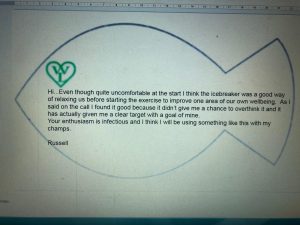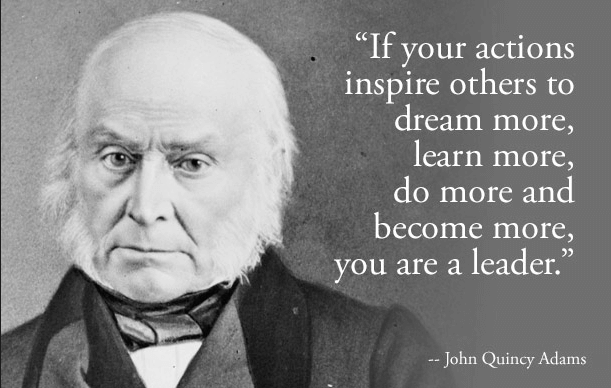Our influencial people
Each Month we shine the spotlight on one of our Wonderful Coaches or one of the people that has inspired them. This month we focus on Geoff Thompson, a friend and inspiration to our CEO and Founder Neil Gowing.

Geoff Thompson is a BAFTA-winning writer, filmmaker, teacher, and self-defence instructor. He has written several books on self-help, self-defence and martial arts, and has written many screenplays for short and feature films.
In 2004, Geoff won a BAFTA award for ‘best short film’ for his screenplay “Brown Paper Bag”. His first feature film Clubbed (2008), starring Colin Salmon, is an underworld drama set in the early 1980s and is based on his autobiography Watch My Back. His work Romans 12:20, directed by the Shammasian Brothers and starring Craig Conway, was first shown at a private screening in London on 23 January 2008. It toured the film festival circuit in the early part of 2008. It has been adapted into a feature film, Romans (2017), starring Orlando Bloom.
He also wrote the screenplay for the feature film The Pyramid Texts (2015), starring James Cosmo and made his directorial debut in 2015 with the short film The 20 Minute Film Pitch. Geoff’s first short film—Bouncer (2003)—starred the film icon Ray Winstone.
Neil met Geoff ten years ago when he attended one of his writing workshops in Coventry. Neil says ” Geoff is a truly inspirational human being and just being in the company of him opened my awareness to a completely different view on life.
“Your enthusiasm is infectious".

Latest News
National Lottery Funding

The Don’t Run Before You an Walk Marathon
Motivation Collection



Takeaway - Mindfulness
It can be easy to rush through life without stopping to notice much.
Paying more attention to the present moment – to your own thoughts and feelings, and to the world around you – can improve your mental wellbeing.
You can check your mood using this simple NHS mood self-assessment quiz
Some people call this awareness “mindfulness”. Mindfulness can help us enjoy life more and understand ourselves better. You can take steps to develop it in your own life.

What is mindfulness?
Professor Mark Williams, former director of the Oxford Mindfulness Centre, says that mindfulness means knowing directly what is going on inside and outside ourselves, moment by moment.
“It’s easy to stop noticing the world around us. It’s also easy to lose touch with the way our bodies are feeling and to end up living ‘in our heads’ – caught up in our thoughts without stopping to notice how those thoughts are driving our emotions and behaviour,” he says.
“An important part of mindfulness is reconnecting with our bodies and the sensations they experience. This means waking up to the sights, sounds, smells and tastes of the present moment. That might be something as simple as the feel of a banister as we walk upstairs.
“Another important part of mindfulness is an awareness of our thoughts and feelings as they happen moment to moment.
“It’s about allowing ourselves to see the present moment clearly. When we do that, it can positively change the way we see ourselves and our lives.”
How mindfulness helps mental wellbeing.
Becoming more aware of the present moment can help us enjoy the world around us more and understand ourselves better.
When we become more aware of the present moment, we begin to experience afresh things that we have been taking for granted.
“Mindfulness also allows us to become more aware of the stream of thoughts and feelings that we experience,” says Professor Williams, “and to see how we can become entangled in that stream in ways that are not helpful.
“This lets us stand back from our thoughts and start to see their patterns. Gradually, we can train ourselves to notice when our thoughts are taking over and realise that thoughts are simply ‘mental events’ that do not have to control us.
“Most of us have issues that we find hard to let go and mindfulness can help us deal with them more productively. We can ask: ‘Is trying to solve this by brooding about it helpful, or am I just getting caught up in my thoughts?’
“Awareness of this kind also helps us notice signs of stress or anxiety earlier and helps us deal with them better.”
Mindfulness is recommended by the National Institute for Health and Care Excellence (NICE) as a way to prevent depression in people who have had 3 or more bouts of depression in the past.
How to be more mindful.
Reminding yourself to take notice of your thoughts, feelings, body sensations and the world around you is the first step to mindfulness.
Notice the everyday
“Even as we go about our daily lives, we can notice the sensations of things, the food we eat, the air moving past the body as we walk,” says Professor Williams. “All this may sound very small, but it has huge power to interrupt the ‘autopilot’ mode we often engage day to day, and to give us new perspectives on life.”
Keep it regular
It can be helpful to pick a regular time – the morning journey to work or a walk at lunchtime – during which you decide to be aware of the sensations created by the world around you.
Try something new
Trying new things, such as sitting in a different seat in meetings or going somewhere new for lunch, can also help you notice the world in a new way.
Watch your thoughts
“Some people find it very difficult to practice mindfulness. As soon as they stop what they’re doing, lots of thoughts and worries crowd in,” says Professor Williams.
“It might be useful to remember that mindfulness isn’t about making these thoughts go away, but rather about seeing them as mental events.
“Imagine standing at a bus station and seeing ‘thought buses’ coming and going without having to get on them and be taken away. This can be very hard at first, but with gentle persistence it is possible.
“Some people find that it is easier to cope with an over-busy mind if they are doing gentle yoga or walking.”
Name thoughts and feelings
To develop an awareness of thoughts and feelings, some people find it helpful to silently name them: “Here’s the thought that I might fail that exam”. Or, “This is anxiety”.
Free yourself from the past and future
You can practise mindfulness anywhere, but it can be especially helpful to take a mindful approach if you realise that, for several minutes, you have been “trapped” in reliving past problems or “pre-living” future worries.
Different mindfulness practices
As well as practising mindfulness in daily life, it can be helpful to set aside time for a more formal mindfulness practice.
Mindfulness meditation involves sitting silently and paying attention to thoughts, sounds, the sensations of breathing or parts of the body, bringing your attention back whenever the mind starts to wander.
Yoga and tai-chi can also help with developing awareness of your breathing.
Is mindfulness helpful for everyone?
“Mindfulness isn’t the answer to everything, and it’s important that our enthusiasm doesn’t run ahead of the evidence,” says Professor Williams.
“There’s encouraging evidence for its use in health, education, prisons and workplaces, but it’s important to realise that research is still going on in all of these fields. Once we have the results, we’ll be able to see more clearly who mindfulness is most helpful for.”
Depression tends to cause cascades of negative thoughts. Using mindfulness and observing that your mind is generating these thoughts allows you to start changing your relationship to them. For example, when feeling like a failure, you might say, “There’s that failure type of thought again,” and in that way be able to let it go or lessen its grip.
In one instance a woman described feeling depressed after being fired from a job after several years because she was frequently argumentative. In fact, in the mindfulness class she was often argumentative as well. She was encouraged to observe her argumentative thoughts in her meditation and to try letting them go and noticing how she felt. When she did so, she noticed she felt very vulnerable. She realized this perceived vulnerability was related to some past events in her childhood, but she no longer was as helpless as she had been as a child. She gradually was able to loosen up her argumentative style and stay more rooted in the present moment.
MBCT-based programs have been scientifically proven in a National Institute of Health study to bring relief to chronic sufferers of depression by helping them realize that their thoughts are not their reality.
Next Issue:
- Focus on Our Trustees
- Latest News
- Takeaway– Getting your 5-A-Day
